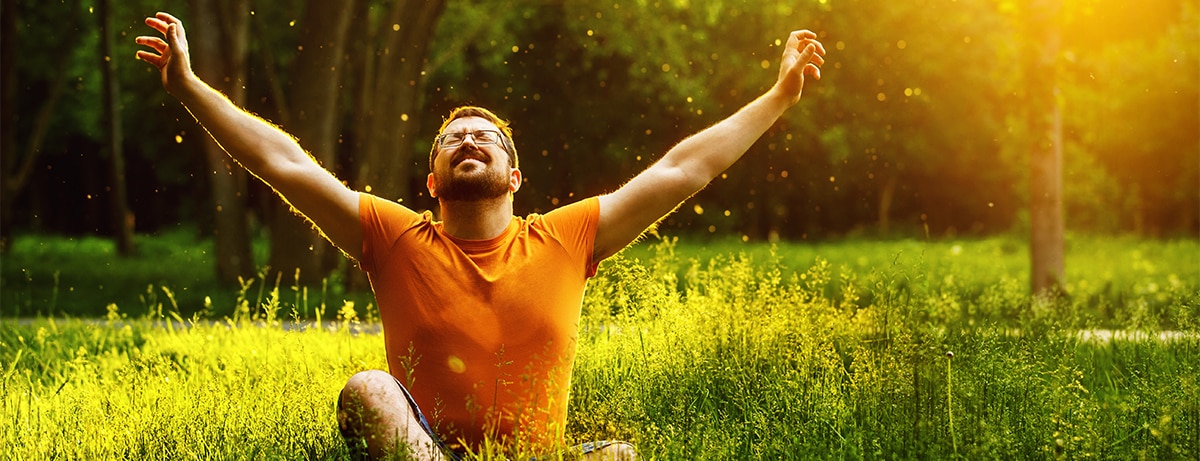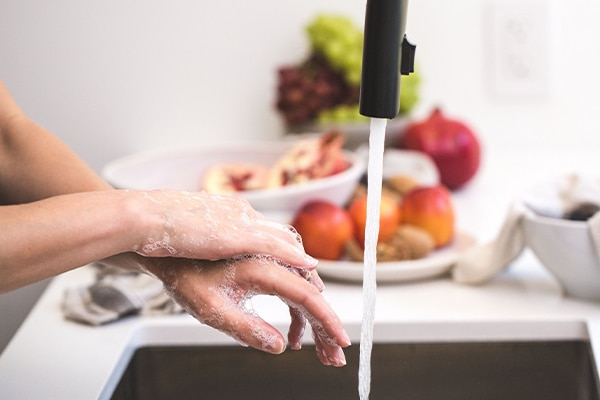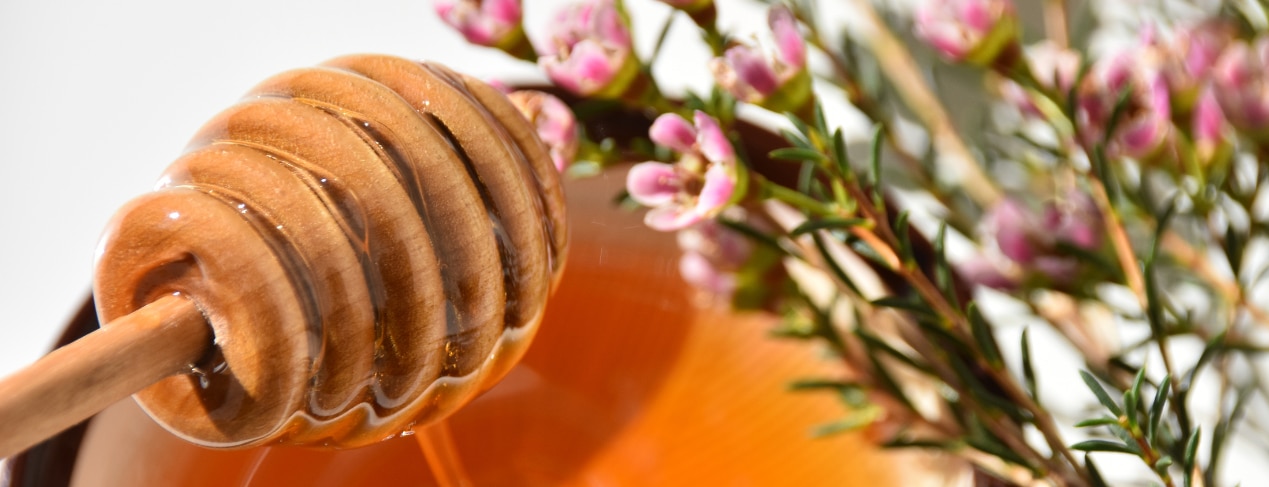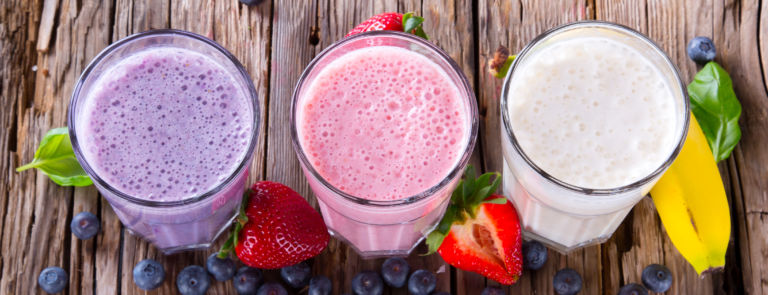15% off £20
We answer your most Googled questions on immunity

Got a sniffle that won’t shift?
The more you know about your immune system, the better you can help it look after you.
Whether you’re getting ahead of the back-to-school bugs, or you’d just like to know more about how your body fights disease, we’re here to help...
1. What does immunity mean?
2. Can you increase immunity?
2. Can you increase immunity?
There are things you can do to support your immune system and help keep it functioning at its very best. But everyone’s best is different.
What you can’t do is “boost” your immunity beyond its natural capabilities. Unfortunately, it’s not possible to create a perfect immune system.
Still, healthy habits are vital to look after your immune system so that it can look after you.


3.Why is immunity important?
Your immune system saves your life every day. Without it, you might not be able to fight off common illnesses like a cold.
Everything from a chronic disease to a splinter needs your immune system to protect you.
4. How does immunity work in the human body?
The immune system is activated when it detects an antigen, something that doesn’t belong to the body (such as a virus).2
If you don’t have immunity against this kind of antigen, you might get ill.
If you do have immunity (for example, if you’ve had this kind of illness before or you’re vaccinated against it), your immune system recognises the antigen and remembers how to fight against it.3 Autoimmune disorders happen when the body mistakes cells in the body for antigens and begins to fight against them.4
5. How do I know if my immunity’s good?
5. How do I know if my immunity’s good?
A good immune system is one you don’t have to think about! It works hard in the background to fight off illness and keep you feeling on top form almost every day. A few colds or bugs per year are normal, even for someone with a healthy immune system. If you:
- Wake up well-rested
- Can shake off a cold within 1-2 weeks5
- Feel generally well throughout the year, aside from a few bouts of illness
It's likely that your immune system is doing its job.


6. Is your immune system stronger in the summer?
In certain ways, yes! Research led by the University of Cambridge found that almost a quarter of our genes differ according to the time of year, which can affect our chances of catching or warding off different diseases.6
What’s more, the seasonal genes showed opposite patterns in people living in the Northern and Southern hemispheres.7
The findings “strongly suggest” that the immune system is “more pro-inflammatory" in winter. 8 Inflammation is one of our body’s natural defence mechanisms, but it can also increase our risk of disease.9
On top of this, we spend more time indoors in winter, where we mix more closely with people. And some viruses, like the flu, survive longer in colder weather.10
7. Why does immunity decrease with age?
As you get older, the immune system becomes less efficient at detecting pathogens and slower to respond to them.11
It’s not fully known why. But some scientists have noticed that the increased risk correlates with a decrease in T cells, a type of white blood cell that fights off pathogens.12,13
An organ that stores T cells, called the thymus, gets smaller as you age and releases fewer T cells into the body.14
This isn’t a proven reason for weaker immunity as you get older, but it could help explain part of it.
8. How can you boost your immunity naturally?
As we mentioned, it’s not possible to “supercharge” your immunity beyond its natural capabilities. But there are ways you can help it perform its best:
- Eat a healthy, balanced diet
- Exercise regularly
- Get enough sleep
- Wash your hands often
- Avoid alcohol and smoking
- Maintain a healthy body mass
- Stay up to date on vaccines
- Reduce stress where you can


9. Can your period affect your immune system?
Outside of the usual PMS, you’re more prone to feeling under the weather at certain times of the month. But some of these changes (like “period flu”, which can bring headaches, stomach issues and tiredness) are thought to be down to hormones rather than a compromised immune system.15
That said, the female reproductive system has its own immunological changes throughout the menstrual cycle.16 Before ovulation, numbers of cytotoxic T cells (bacteria and virus-killing cells) in the uterine lining reduce suddenly.17
But during the late luteal stage (after ovulation), about 40% of all stromal cells in the uterine lining are immune-supporting white blood cells. This is significantly different to your usual makeup.18
While you might feel run down around your period, it’s still not fully known whether other immune-related changes happen outside of the reproductive system, or whether they affect your general immune response.
10. What are 4 types of immunity?
Our immune system protects us in different ways. There are 4 main types of immunity:
Active immunity develops in response to a pathogen entering your body.19
1. Natural active: You’ll develop this kind of immunity after exposure to an infection.20
2. Artificial active: You’ll develop this kind of immunity after a vaccination.21
Active immunity takes some time to build, but it’s long-lasting. If you come into contact with that disease in the future, your immune system can produce the antibodies needed to protect you.22,23
This is why children pick up more coughs and colds; they haven’t acquired the active immunity to fight them off. There are actually over 100 different cold viruses alone – that's a lot of immunity to build! 24 Passive immunity is a type of immunity you develop from someone or something else.25
3. Natural passive: You'll have got this before birth, from your mother’s placenta.26
4. Artificial passive: You can get this from certain medical treatments designed to help those with weaker immune systems.27
Passive immunity is immediate. However, it doesn’t last very long: only a few weeks or months.28
The final say
The less we notice our immune system, the better it’s doing. But that doesn’t mean we should ignore it!
While we can’t “boost” it beyond its natural best, we can take steps every day to look after the immunity we do have.
- https://my.clevelandclinic.org/health/articles/21196-immune-system
- https://www.ncbi.nlm.nih.gov/books/NBK279364/
- https://www.ncbi.nlm.nih.gov/books/NBK279364/
- https://www.ncbi.nlm.nih.gov/books/NBK279364/
- https://www.nhs.uk/conditions/common-cold/
- https://www.nature.com/articles/ncomms8000
- https://www.nature.com/articles/ncomms8000
- https://www.nature.com/articles/ncomms8000
- https://www.bhf.org.uk/informationsupport/heart-matters-magazine/research/what-is-inflammation
- https://www.cam.ac.uk/research/news/seasonal-immunity-activity-of-thousands-of-genes-differs-from-winter-to-summer
- https://www.health.harvard.edu/staying-healthy/how-to-boost-your-immune-system
- https://medlineplus.gov/ency/article/004008.htm
- https://www.health.harvard.edu/staying-healthy/how-to-boost-your-immune-system
- https://my.clevelandclinic.org/health/body/24630-t-cells
- https://my.clevelandclinic.org/health/body/24630-t-cells
- https://my.clevelandclinic.org/health/articles/21196-immune-system
- https://www.verywellhealth.com/period-flu-5176492
- https://journals.sagepub.com/doi/pdf/10.2217/WHE.13.32
- https://journals.sagepub.com/doi/pdf/10.2217/WHE.13.32
- http://www.immunodeficiencyuk.org/static/media/up/Immunodeficiency%20UK%20Special%20Edition%20Newsletter%20-%20April%202021.pdf
- http://www.immunodeficiencyuk.org/static/media/up/Immunodeficiency%20UK%20Special%20Edition%20Newsletter%20-%20April%202021.pdf
- http://www.immunodeficiencyuk.org/static/media/up/Immunodeficiency%20UK%20Special%20Edition%20Newsletter%20-%20April%202021.pdf
- https://www.cdc.gov/vaccines/vac-gen/immunity-types.htm
- http://www.immunodeficiencyuk.org/static/media/up/Immunodeficiency%20UK%20Special%20Edition%20Newsletter%20-%20April%202021.pdf
- https://www.ncbi.nlm.nih.gov/pmc/articles/PMC2722603/
- https://www.cdc.gov/vaccines/vac-gen/immunity-types.htm
- http://www.immunodeficiencyuk.org/static/media/up/Immunodeficiency%20UK%20Special%20Edition%20Newsletter%20-%20April%202021.pdf
- https://www.cdc.gov/vaccines/vac-gen/immunity-types.htm
The advice in this article is for information only and should not replace medical care. Please check with your GP or healthcare professional before trying any supplements, treatments or remedies















